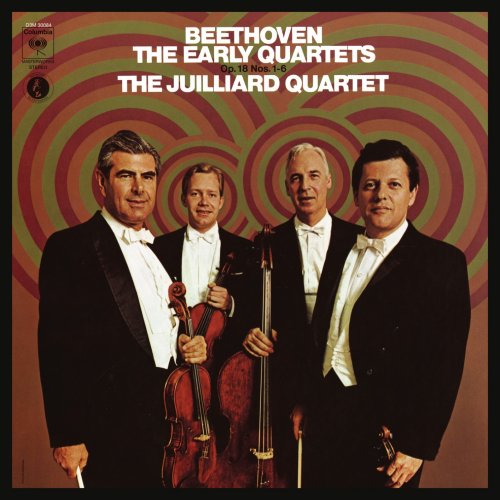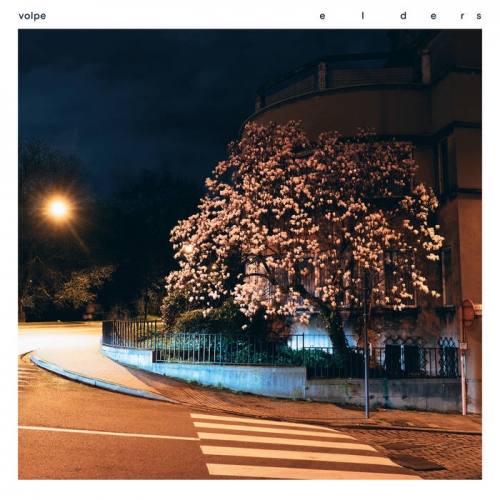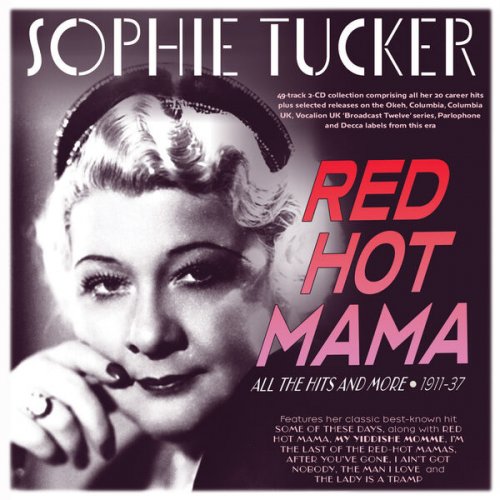Juilliard String Quartet - Beethoven: The Early Quartets, Op. 18, Nos. 1 - 6 (Remastered) (2020) [Hi-Res]

Artist: Juilliard String Quartet
Title: Beethoven: The Early Quartets, Op. 18, Nos. 1 - 6 (Remastered)
Year Of Release: 2020
Label: Sony Classical
Genre: Classical
Quality: FLAC (tracks) / 24bit-192kHz FLAC (tracks)
Total Time: 02:29:49
Total Size: 705 MB / 5.48 GB
WebSite: Album Preview
Tracklist:Title: Beethoven: The Early Quartets, Op. 18, Nos. 1 - 6 (Remastered)
Year Of Release: 2020
Label: Sony Classical
Genre: Classical
Quality: FLAC (tracks) / 24bit-192kHz FLAC (tracks)
Total Time: 02:29:49
Total Size: 705 MB / 5.48 GB
WebSite: Album Preview
1. String Quartet No. 1 in F Major, Op. 18/1: I. Allegro con brio (6:29)
2. String Quartet No. 1 in F Major, Op. 18/1: II. Adagio affettuoso ed appassionato (10:11)
3. String Quartet No. 1 in F Major, Op. 18/1: III. Scherzo. Allegro molto (3:25)
4. String Quartet No. 1 in F Major, Op. 18/1: IV. Allegro (6:46)
5. String Quartet No. 2 in G Major, Op. 18/2: I. Allegro (6:00)
6. String Quartet No. 2 in G Major, Op. 18/2: II. Adagio cantabile (7:03)
7. String Quartet No. 2 in G Major, Op. 18/2: III. Scherzo. Allegro (4:19)
8. String Quartet No. 2 in G Major, Op. 18/2: IV. Allegro molto quasi presto (5:13)
9. String Quartet No. 3 in D Major, Op. 18/3: I. Allegro (7:20)
10. String Quartet No. 3 in D Major, Op. 18/3: II. Andante con moto (8:30)
11. String Quartet No. 3 in D Major, Op. 18/3: III. Allegro (3:09)
12. String Quartet No. 3 in D Major, Op. 18/3: IV. Presto (5:46)
13. String Quartet No. 4 in C Minor, Op. 18/4: I. Allegro ma non tanto (8:25)
14. String Quartet No. 4 in C Minor, Op. 18/4: II. Scherzo. Andante scherzoso quasi allegretto (5:41)
15. String Quartet No. 4 in C Minor, Op. 18/4: III. Menuetto. Allegretto (3:24)
16. String Quartet No. 4 in C Minor, Op. 18/4: IV. Allegro (4:18)
17. String Quartet No. 5 in A Major, Op. 18/5: I. Allegro (6:30)
18. String Quartet No. 5 in A Major, Op. 18/5: II. Menuetto (4:44)
19. String Quartet No. 5 in A Major, Op. 18/5: III. Andante cantabile (10:44)
20. String Quartet No. 5 in A Major, Op. 18/5: IV. Allegro (6:07)
21. String Quartet No. 6 in B-Flat Major, Op. 18/6: I. Allegro con brio (5:42)
22. String Quartet No. 6 in B-Flat Major, Op. 18/6: II. Adagio ma non troppo (8:15)
23. String Quartet No. 6 in B-Flat Major, Op. 18/6: III. Scherzo. Allegro (3:07)
24. String Quartet No. 6 in B-Flat Major, Op. 18/6: IV. La malinconia. Adagio - Allegretto quasi allegro (8:50)
The Juilliard String Quartet. For over seventy years they have been a household name in several different formations. They are connected to the prestigious Juilliard School in New York.
A great adage attributed to Malraux insists that an artist paints a tree not because he has seen a tree, but because he has seen a painting of a tree. A musical style is born not with its first pioneer but with the first follower. Joseph Haydn was the original string quartet pioneer, establishing the genre in a remarkable series of works that reached first maturity in 1771. Mozart was the first follower. Around the age of 28, freshly relocated to Vienna, he plunged into a multi-year study of Haydn's quartets (along with Bach's counterpoint) and with significant labor, produced his six masterworks dedicated lovingly to Haydn himself. There were slews of Haydn imitators, but history has winnowed our awareness down to the few of startling originality and expressive power. First Mozart. Then Beethoven. In an odd parallel to Mozart, Beethoven, around 28, freshly relocated in Vienna and, armed with recent lessons in counterpoint from Albrechtsberger, turned to the string quartet for the first time. He too focused obsessively for nearly two years and produced, along with piles of sketchbooks, his set of six quartets, Op. 18 that were published, auspiciously, in 1801, the first year of the 19th century. In a thirty-year period, Haydn, Mozart and Beethoven crystallized the high Classical style of Viennese chamber music in a magnificent canon of quartets that represented a radical innovation, a sea change from the Baroque into a new, highly refined rhetoric of music discourse, expression and exploration inseparable from this new-fangled ensemble called the string quartet.
The String Quartet No. 1 in F Major, Op. 18, No. 1 begins one of the greatest cycles of music in the entire Western Classical canon, the sixteen quartets of Beethoven spanning the whole of his creative life. Composed between 1798 and 1800, the six Op. 18 quartets show an astonishing mastery of the language of Haydn and Mozart, a language that Beethoven used nonetheless to express his own emerging personality and to demonstrate his own relentless innovative creativity. These are "classical" works in the truest sense: Beethoven's closest "imitation" of Haydn and Mozart before he would revolutionize the genre with his next set, Op. 59. Naturally considered to be from Beethoven's "early" period, the Op. 18 quartets reveal, in all their variety and complexity, all the elements of Beethoven's middle and late styles albeit clear perhaps only in retrospect. Actually the second quartet that he composed, the F Major was placed first within the published Op. 18 set by Beethoven. For its energy, drama and craftsmanship, it is a perfect opening move, a showcase for this new young maverick to break ground in a daunting and already mature tradition. ... (Kai Christiansen)
Digitally remastered
A great adage attributed to Malraux insists that an artist paints a tree not because he has seen a tree, but because he has seen a painting of a tree. A musical style is born not with its first pioneer but with the first follower. Joseph Haydn was the original string quartet pioneer, establishing the genre in a remarkable series of works that reached first maturity in 1771. Mozart was the first follower. Around the age of 28, freshly relocated to Vienna, he plunged into a multi-year study of Haydn's quartets (along with Bach's counterpoint) and with significant labor, produced his six masterworks dedicated lovingly to Haydn himself. There were slews of Haydn imitators, but history has winnowed our awareness down to the few of startling originality and expressive power. First Mozart. Then Beethoven. In an odd parallel to Mozart, Beethoven, around 28, freshly relocated in Vienna and, armed with recent lessons in counterpoint from Albrechtsberger, turned to the string quartet for the first time. He too focused obsessively for nearly two years and produced, along with piles of sketchbooks, his set of six quartets, Op. 18 that were published, auspiciously, in 1801, the first year of the 19th century. In a thirty-year period, Haydn, Mozart and Beethoven crystallized the high Classical style of Viennese chamber music in a magnificent canon of quartets that represented a radical innovation, a sea change from the Baroque into a new, highly refined rhetoric of music discourse, expression and exploration inseparable from this new-fangled ensemble called the string quartet.
The String Quartet No. 1 in F Major, Op. 18, No. 1 begins one of the greatest cycles of music in the entire Western Classical canon, the sixteen quartets of Beethoven spanning the whole of his creative life. Composed between 1798 and 1800, the six Op. 18 quartets show an astonishing mastery of the language of Haydn and Mozart, a language that Beethoven used nonetheless to express his own emerging personality and to demonstrate his own relentless innovative creativity. These are "classical" works in the truest sense: Beethoven's closest "imitation" of Haydn and Mozart before he would revolutionize the genre with his next set, Op. 59. Naturally considered to be from Beethoven's "early" period, the Op. 18 quartets reveal, in all their variety and complexity, all the elements of Beethoven's middle and late styles albeit clear perhaps only in retrospect. Actually the second quartet that he composed, the F Major was placed first within the published Op. 18 set by Beethoven. For its energy, drama and craftsmanship, it is a perfect opening move, a showcase for this new young maverick to break ground in a daunting and already mature tradition. ... (Kai Christiansen)
Digitally remastered
![Soulparlor - Day By Day (2025) [Hi-Res] Soulparlor - Day By Day (2025) [Hi-Res]](https://www.dibpic.com/uploads/posts/2025-11/1762578819_xw0kobyk0sunc_600.jpg)

![Aaron Parks - By All Means (2025) [Hi-Res] Aaron Parks - By All Means (2025) [Hi-Res]](https://www.dibpic.com/uploads/posts/2025-11/1762334967_by0ba50eyhnfc_600.jpg)


![Uros Peric, Big Band RTV Slovenija - Screamin’ Hallelujah (2022) [Hi-Res] Uros Peric, Big Band RTV Slovenija - Screamin’ Hallelujah (2022) [Hi-Res]](https://www.dibpic.com/uploads/posts/2025-11/1762508895_upsh500.jpg)

![James Newton Quartet - Live in Willisau Switzerland 1983 (Live) (2025) [Hi-Res] James Newton Quartet - Live in Willisau Switzerland 1983 (Live) (2025) [Hi-Res]](https://img.israbox.com/img/2025-11/08/89npv9nuxof1eojrn4rfwc596.jpg)
![Rotem Sivan - Heart Thieves (2025) [Hi-Res] Rotem Sivan - Heart Thieves (2025) [Hi-Res]](https://www.dibpic.com/uploads/posts/2025-11/1762586952_wdida7vxsh15a_600.jpg)